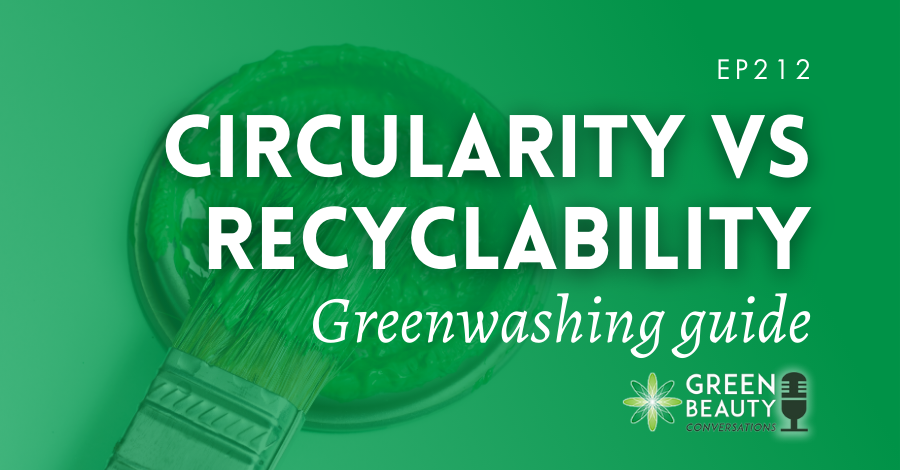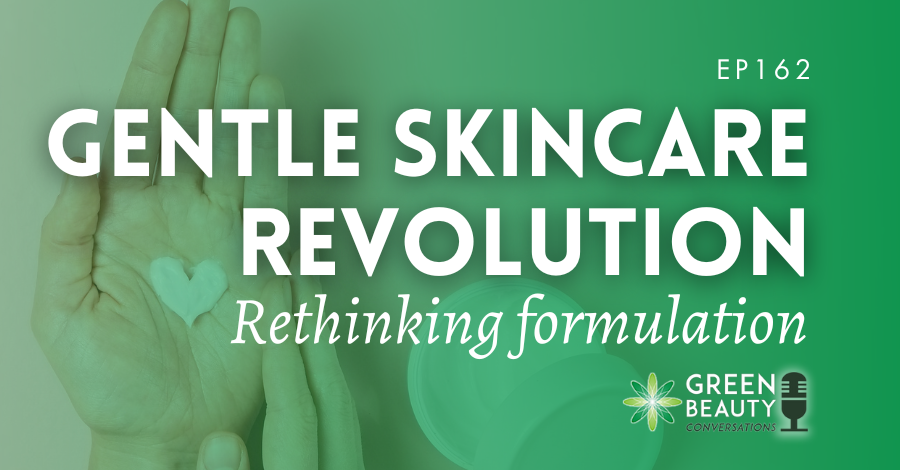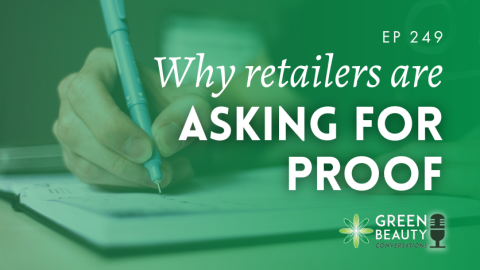Circularity and recyclability are often misunderstood concepts in the beauty industry. Last week, we explored the potential of upcycled beauty ingredients with Harry McIlwraith of the Upcycled Beauty Company.
Building on that enlightening discussion in this week’s opinion episode, Formula Botanica CEO Lorraine Dallmeier tackles a crucial question: What really defines a circular beauty product, and how does it differ from mere recyclability?
Tune in as we unravel the misconceptions and confront greenwashing in the beauty sector.
Host Quote:
“Let’s not try to pretend that we’re creating a circular economy if what cosmetics companies are really talking about is just trying to make their plastics recyclable in the first place.” – Lorraine Dallmeier
Key takeaways:
- Understanding circularity in beauty: This week’s episode provides a deep dive into the concept of circularity within the beauty industry. The term circularity, often misunderstood or misused by brands, is about creating a system where materials are reused continuously, avoiding waste entirely. Lorraine emphasises the importance of distinguishing this from recyclability. She explains that while recyclability implies a finite lifecycle for materials, circularity represents an ongoing cycle, a concept that is pivotal for genuine sustainability in the beauty sector.
- The reality of recycling: Building upon the insights from previous episodes, particularly episode 188 with it’s focus on the limitations of plastic recycling, Lorraine sheds light on the shortcomings of recyclability. She highlights how most materials, including plastics, have a limited recyclability lifespan. This finite nature of recyclability often contradicts the principles of a truly circular economy, where the goal is to create a never-ending lifecycle for materials.
- Beauty’s misleading claims: The episode also takes a critical look at how the beauty industry often conflates circularity with recyclability. Lorraine points out that many beauty companies label their efforts as circular when, in reality, they are only focusing on recyclability. This misrepresentation can lead to greenwashing, misleading consumers about the environmental impact of products. The challenge, therefore, lies in educating consumers to discern these claims and encouraging them to hold beauty brands accountable for their sustainability practices.
- Embracing true circularity: The final takeaway is a call to action for both consumers and the industry. It encourages you to look beyond the marketing jargon and seek out beauty brands that are making genuine efforts towards circularity. Lorraine urges the industry to innovate and invest in processes that truly embody the principles of a circular economy, paving the way for a more sustainable future in beauty.
Thank you for joining us for this episode of the Formula Botanica Green Beauty Conversations podcast. If you enjoyed listening, please share, subscribe and review this episode on Apple Podcasts, Spotify or Youtube so that more people can enjoy the show. Don’t forget to follow and connect with us on Facebook and Instagram.
FREE TRAINING
Learn how to become an
Organic Skincare Formulator
FREE TRAINING
How to become an
Organic Skincare Entrepreneur
FREE TRAINING
How to become an
Organic Skincare Entrepreneur
Leave us a comment
Lorraine Dallmeier is a Biologist, Chartered Environmentalist and the CEO of Formula Botanica, the award-winning online organic cosmetic science school. Read more about Lorraine and the Formula Botanica Team.




























